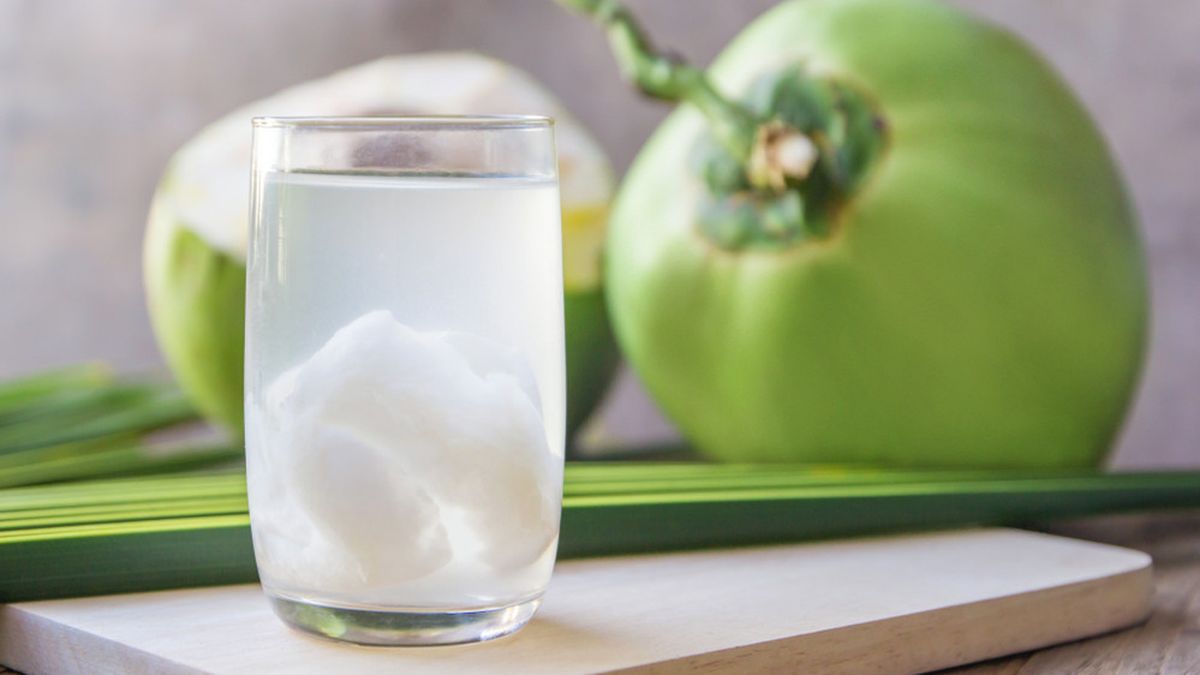Everyone must be familiar with coconut water. Coconut water has a myriad of benefits for health and beauty. In the health sector, coconut water can be used as a medicine to treat diarrhea, constipation, intestinal worms, kidney disorders, relieve dehydration, control blood pressure. In the field of beauty, coconut water can protect and maintain skin elasticity. This is because coconut water has a complex organic material containing sugars, vitamins, minerals, amino acids and phytohormones. The hormones found in coconut water are cytokinins. Types of cytokinins include trans-zeatin, zeatin glucoside, zeatin riboside, and urea.
Apart from being beneficial in the health and beauty fields, coconut water can also be used for plant tissue culture biotechnology, to obtain large amounts of callus. For example, coconut water is used to optimize callus on black betel plants ( Piper betleL. var Nigra). The betel plant has long been used by people in Indonesia, India, Pakistan and South Africa. It contains secondary metabolites of alkaloids, flavonoids, saponins, terpenoids, and steroids that have the potential to be antibacterial, antifungal, antidiabetic, antithrombocyte, antifertility, antitumor, antimutagen, and so on. As a potential medicinal plant, this plant is widely sought by the public, generally the secondary metabolites of medicinal plants are obtained directly by extraction. If the need for this plant is done conventionally it is not enough because it requires a long time, extensive land and also depends on the weather.
Therefore, an alternative method is needed to obtain secondary metabolites that are more efficient on a large scale with good quality. This is the reason why callus cultures were chosen to propagate medicinal plants. Growth regulators also determine the success of plant tissue culture. There are two types of growth regulators commonly used in tissue culture, auxins and cytokines. This research provides information about the benefits of coconut water combined with auxin 2,4D and BAP to obtain black betel callus biomass.
Method used to obtain callus biomass is by making Murashige and Skoog (MS) medium, sterilizing black betel leaf explants, planting explants and harvesting. To make Murashige and Skoog (MS) medium, macro nutrients, micro nutrients, myoinositol, iron, vitamins, sucrose and agar are needed. Then the medium is added with a growth regulator 2,4 D, BAP and coconut water. The pH of the medium was adjusted to the range of 5.6-5.8 using 1 N KOH or 1 N HCl. Each culture bottle was filled with ± 10 ml / bottle medium. The culture bottles were covered with aluminum foil and sterilized using an autoclave at a temperature of 121 ° C for 15 minutes, 1.2 atm. Explant sterilization was carried out by washing black betel leaves with detergent, then rinsing with running water for three times. The next step is sterilization with 10% chlorox for 7 minutes. The leaves were rinsed with sterile aquadest three times. The explants were put into a petri dish covered with sterile filter paper, the leaves were cut into 1 cm2 sizes to be planted on MS medium. Furthermore, the culture bottles were stored in an incubation room at 25 ° C under a 20 watt fluorescent lamp.
Black betel leaf explants planted on MS medium with the addition of 5% coconut water combined with 0.5 mg / L 2,4-D and 2.0 mg / L BAP were able to induce the fastest callus growth compared to treatment with an average time 13, 16 days. This is different from treatment without addition of coconut water is 17,75 days. Here there is a difference in the induction time between with and without the addition of coconut water. There was a difference in callus induction time for black betel leaf on MS medium with a combination of 0.5 mg / l 2,4-D and 2.0 mg / l BAP with and without the addition of coconut water. It is assumed to happen due to the content of diphenyl urea in coconut water which has cytokinin-like activity to induce cell division in tissue culture. Furthermore, coconut water contains various vitamins, such as thiamine and pyridoxine. The micronutrients in the coconut water can also increase the nutrients in the medium.
Author: Dr. Junairiah, S.Si., M.Kes.
Department of Biology, Faculty of Science and Technology, Universitas Airlangga (UNAIR)
Details of the journal: http://agribiop.com/category/annals-of-biology/ Junairiah, Wijayanti, ET, Manuhara, YSW, Ni’matuzahroh, Sulistyorini, L. 2020. Optimization of Callus Induction from Piper betle L. var Nigra Explants with Various Concentrations of Coconut Water and Addition of 2,4D and BAP. Annals of Biology 36 (2): 324-328





